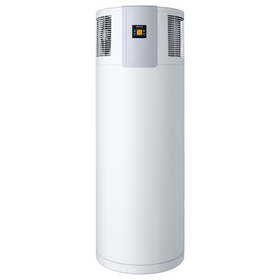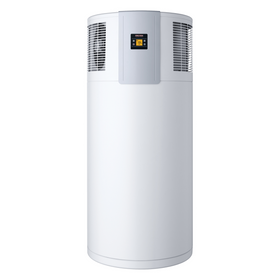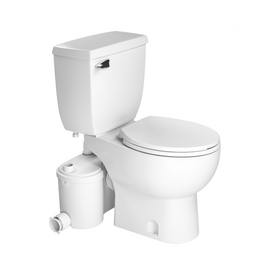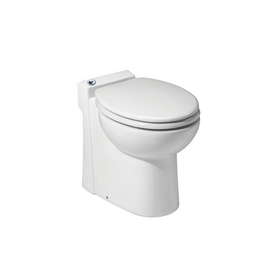
Personal Goals for Sustainability at Home
Last Updated: Apr 13, 2025Ask anyone where they see themselves in 10 years, and the majority of people will rattle off a list of goals they hope to accomplish. Whether about career, personal, financial, or fitness goals, plans for achievement seem to unfold effortlessly. The question is, why is this same approach not commonly used for personal environmental sustainability goals?
Imagine this. It's the year 2050. You haven't seen a plastic bag in years. Your local organic farmer is on speed dial. Plants are the foundation of your diet. Transportation is electric, and renewables produce all energy. Life is good.
Great mental images, right? But, how many of us are mindful of our environmental impact or are taking active steps to achieve this sustainable life? If you want to get a promotion, you stay late at work. If you want to run a marathon, you wake up at 5 a.m. to train. If you want to live an environmentally friendly lifestyle, you need to take the same approach - set a goal and work toward it.
Table of Contents
- Science Behind Goal Setting
- Sustainable Goal Inspiration
- Sustainable Goal Setting Examples
- Personal Sustainability Goals Can Make a Difference

Science Behind Goal Setting
For any subject, establishing a specific goal is proven to yield more successful results than compared to working at something aimlessly. The process goes much deeper than mere inspiring thoughts. Goal setting stimulates a physical reaction as well. Goal-setting heightens systolic blood pressure (SBP), which increases our readiness to pursue and accomplish goals. Higher SBP activates the medial prefrontal cortex, the part of our brain that allows us to think about action and setting targets. Goal setting triggers neurochemical changes in the brain that increases the likelihood of achieving the goal. Before changing behaviors, by merely setting a goal, human bodies react and increase the chance of accomplishing the goal.
Renowned psychologist Edwin Locke is known as the father of the Goal-Setting Theory and was the first to publish research on the subject. Locke stated that people who set specific, quality goals have a better chance of reaching the goal. Locke has dozens of published research about the subject, such as Grade Goals As Determinate Of Academic Achievement (1968), Purpose Without Consciousness (1969), and The Directing Function of Goals In Task Performance (1969), to name just a few. Hundreds of studies for the decades since then have backed up Locke's theory showing a linear correlation between goal setting and goal accomplishment data. For example, a Goal Research study by the Dominican University of California had clear results. They found that participants who wrote down their goals, formulated action commitments, and sent them along with weekly progress reports to a friend were almost twice as likely to achieve their goals. This study also supports enlisting a friend to keep you on track.
We can assume that these results will hold true when applied to environmental goals and can inspire others to follow, as well. So, share your goals and accomplishments, not only is it beneficial for your goal achievements but has the bonus of getting others to practice environmentally friendly behavior. A personal target could be to get five friends to start making environmental goals with you!
Sustainable Goal Inspiration
Taking an inventory of your current activities and thinking about how those activities impact the environment is the first step to choosing sustainability goals. Identifying those that are the most damaging, or are the least healthy, and then working towards changing those items will yield the highest results for the environment and you personally.
However, the most harmful actions often are the hardest to change, and some actions are out of our hands. For example, if you have a goal to cut emissions by drive less, but your city doesn't have public transport, bike lanes, or walking paths, this goal could be hard to accomplish. The is always something you can contribute even for tricky situations like this.

First, you can still help to achieve a goal by supporting legislation. Get to know policies, like new bike paths, and support them. In the meantime, focus on things that are in your control. Starting on the simple things can give you the confidence to tackle the big stuff. All the small things do add up!
Reaching goals checks off boxes, but hopefully, it is also creating healthy habits. Studies show that it takes 66 days on average to develop a habit. It is one thing to reach a goal, but the main objective is to be able to maintain it.
Sustainable Goal Setting Examples
Goals are specific to each individual. They will depend on current sustainable behavior, topics one is passionate about, limitations, and financial flexibility, but for some inspiration, here are some examples.

Have a Competition
Either with yourself or friends, to have the lowest energy bill. Saving emissions from the production of energy and saving you money is definitely a win-win. If you have a smart thermostat, some models will show you how you stack up when compared to your neighbors.
Create a Dedicated Savings Account
Start saving for your green investment. Be it a solar panel or an electric car or a new heat pump. Give yourself a timeline to make that vision a reality and create a plan for how much you need to set aside each month.
Meal Prep
Make a meal plan or do meal prep to eat vegetarian or vegan for a certain number of meals a week. Support your local farmers (and reduce carbon associated with transport) through farmer's markets and increasingly, through online ordering and food box delivery.
Shop All Special Offers
Shop Special Offers on vetted Home Improvement products at low prices while supplies last.

Stiebel Eltron Accelera 300 E Heat Pump Water Heater
Stiebel Eltron
In Stock

Stiebel Eltron Accelera 220 E Heat Pump Water Heater
Stiebel Eltron
In Stock

Quickscrews Cabinet Install Screws
Quickscrews
In Stock

Saniflo Sanibest Pro Combo Macerator System
Saniflo
In Stock

Blanco PRECIS 30 Undermount Single Bowl SILGRANIT Kitchen Sink
Blanco
In Stock
8 Colors

Blanco PRECIS Super Single Undermount SILGRANIT Kitchen Sink
Blanco
In Stock
8 Colors

Hauslane Chef 36" UC-PS18 860 CFM Ducted Undercabinet Range Hood
Hauslane
In Stock
2 Colors

Saniflo 023 Sanicompact Macerating Toilet
Saniflo
In Stock

Blanco Torre Soap Dispenser
Blanco
In Stock
8 Colors

Quickscrews Pan Head Pocket Hole Screws
Quickscrews
In Stock

Food Storage
Replace all the plastic food storage, Tupperware, Ziplock bags, Saran wrap, etc. with glass containers, mason jars, silicon bags, and beeswax cloths. Beeswax cloths work wonderfully, and you can buy them from a wide variety of made in North America merchants (like Abeego, and Bee's Wrap), or make them yourself! All of this will help to reduce plastic waste and will be an investment in reusable, durable products.
Personal Hygiene
Have a plastic and chemical-free shower routine with "naked products" like shampoo and conditioner bars, local soaps, and DIY body scrubs.
Many companies are removing ingredients with health concerns from their products, but unfortunately, most mass-market products are still lacking. You can use services such as the Environmental Working Group's Skin Deep database and the Think Dirty App to find health ratings for most products.
Set Personal Guidelines
Make rules for yourself. For example, only allow yourself to go to a coffee shop if you have your reusable mug. If having your cup is not possible, then limit yourself to beverages that come in a glass, aluminum, or a carton container, never a plastic bottle. Or maybe decide that you won't go to the grocery store unless you have your list AND your re-useable bags with you. Keep some in your vehicle or invest in some smaller, compact bags that can fold up into your purse or messenger bag.
Volunteer
Volunteer at a local nature center. Based on your interests and skills, you could help educate children, spread environmental education, or even invasive species fieldwork.

Reduce Food Waste
Compost all food scraps. Research the best composting options for your living situation and implement it into daily life. Perhaps your city has a municipal composting program. If that is the case, familiarize yourself with exactly what can go in and what can't. If you have a backyard, build or buy a composter! If not, consider vermicomposting. It can be done even in small spaces with minimal effort. Learn more about bokashi fermentation, another innovative way to divert food waste from landfills.
Education
Commit to reading one article a week (from reliable sources) to educate yourself about local environmental policies. Legislation could range from beach erosion management, bike path implantations, to endangered species protection. Once educated, you can spread awareness in your community, sign petitions, or vote to promote policies recommended by environmentalists.
To get additional ideas for setting sustainability goals, books like 101 Ways To Go Zero Waste by Kathryn Kellogg is an excellent resource for ideas. Environmental social media accounts, eco bloggers, and documentaries can provide insight and goal inspiration as well.
Rise has a vast collection and variety of ideas as well, such as Planting for Pollinators, How to Create A Healthy Nursery, Rainwater Harvesting Systems, and much more.

Personal Sustainability Goals Can Make a Difference
Environmental issues are endless, but that means there are countless goals we can work toward as well. Personal growth in environmental stewardship can be taken as seriously as any other personal goals. In fact, you may be surprised by how much they will correlate. For example, an environmental goal of eating less meat can also contribute to a health goal.
Imagine the impact we could have if we all became more mindful of our environmental impact. What we could achieve if we all started setting environmental sustainability goals - and if we began actively working toward achieving those goals. Life would, indeed, be good.
Madeline Carlson
Madeline Carlson is a sustainable home consultant. She graduated from Eckerd College with a double major in Economics and Environmental Studies.
